QuestionOn June 12 2011 I purchased a breeding adult pair of crested geckos from a local pet shop that I have been going to for 8 years. I have then housed in a 36 gallon bowfront aquarium with a 1' tall home custom built screen topper. I have a 100 watt heat emitter, 150 watt uva bulb, and a 30-40 gallon u.t.h. the temp stays around a lower to mid 70s' range with a periodic humidity of 50-80% 2-3 times a day. I'm not quite sure what their prior diet was exactly but I do know dusted crickets were the main food. The male seems to be doing ok. The female on the other hand hasn't moved since the day I brought them home. And I haven't seen either one of them eat(but I work midnights when they are most active) and haven't seen the female drink. Is she still adjusting or is this unusual behavior? What ever advice would be most helpful.
AnswerThe temperature range sounds correct, though you may want to be certain it doesn't get too hot directly under the heat emitter. (Use indoor/outdoor style thermometers with remote probes for accurate readings--the stick on type from pet stores are worthless).
The humidity sounds great.
Now for the bad news--you shouldn't house these animals together. Crested geckos are generally paired up only to breed, and then the male is removed again after breeding is observed. Being housed with another animal can be stressful--the dominant animal can monopolize the resources, and suppress the submissive animal. This can even lead to death, in the long run, as the submissive animal does not get enough to eat, spends most of its time hiding, and eventually succumbs to the stress. None of the breeders I've heard from actually house their geckos together full time, for this reason. So, you should get a second cage for the other animal. Zilla's Acrylic Atrium is perfect for crested geckos, and it's fairly inexpensive. It allows the air flow crested geckos require, while having clear doors so you can view them easily.
The main food for crested geckos should be a meal replacement powder, prepared with water. There are few different brands, but Repashy crested gecko diet is the most popular. (I believe T-Rex is also marketing it in cannisters in pet stores). Crested geckos eat a combination of overripe fruit and insects, in the wild, and the proper balance of nutrients is very difficult to duplicate using fruit purees, calcium and vitamin supplements, and commercially available insects. The meal replacement powders have made keeping cresties very simple, and unlike most reptile food formulas, this one appears to be a wonder food. (In fact, I maintain my Lygodactylus and mourning geckos on it, with a few fruit flies thrown in). CGD revolutionized rhacodactylus keeping, and vastly improved the health of these animals. Zoos use it as well, for that reason.
Crested geckos can be maintained on CGD for their entire lives, and do not require any insects, though some still choose to feed them a few insects. They cannot be maintained on insects alone. Some crested geckos, raised on CGD, refuse to eat crickets. If you want to test whether your female is actually interested in eating when you're not there, offer her a tiny bit of mashed peach or mango. If that isn't irresistible to her, then she may have an issue. Make sure to mist them frequently for drinking water, while they're settling into their new home. It has only been a couple of days, after all, and reptiles can take up to a week to adjust.
Talk to the pet store, and ask if they were feeding CGD (or were they the previous owners? If not, never mind what they were doing, most pet stores are bad sources of pet care advice). If they were not feeding CGD, then you will have to go through the process of switching them over, yourself. The diet they have been maintained on was probably inadequate, unless the owners had their own tested formula of fruit and vitamins added in along with it. This may mean the crested geckos aren't in proper health. If they were feeding their own mix, ask which fruit was offered most commonly. You can use that fruit to help switch them over to eating CGD.
It would be unfortunate if the female's health is already poor, due to inadequate diet before you got her, especially if she's been bred. Still, if that is the case, you may be able to turn things around by improving her conditions and diet. If you're lucky, the previous owners were using a proper diet.
I definitely recommend separating them as soon as possible, as joint housing is just asking for trouble in the long run. Remember, larger breeders seek out the most economical way to safely and properly house the animals they breed, and maximize their health--if breeders keep them separate, it's because keeping them together produces bad results too often to justify it.
Make sure they have plenty of cover, in the form of leafy plants (either real or fake), with broad leaves.
In summary, your environment sounds good, but you may need to separate the animals. Make sure they have plenty of cover. Evaluate their diet, and make sure they're being offered a balanced diet. Give them at least a week to settle in properly. Use water spray as well as small water dishes to offer water, as some crested prefer not to drink from a bowl.

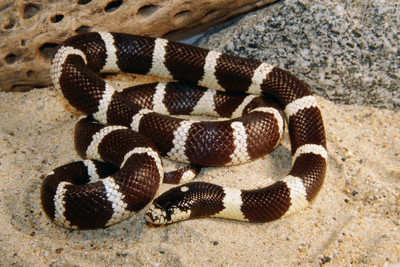 King snake
QuestionQUESTION: I found a king snake in my garden las
King snake
QuestionQUESTION: I found a king snake in my garden las
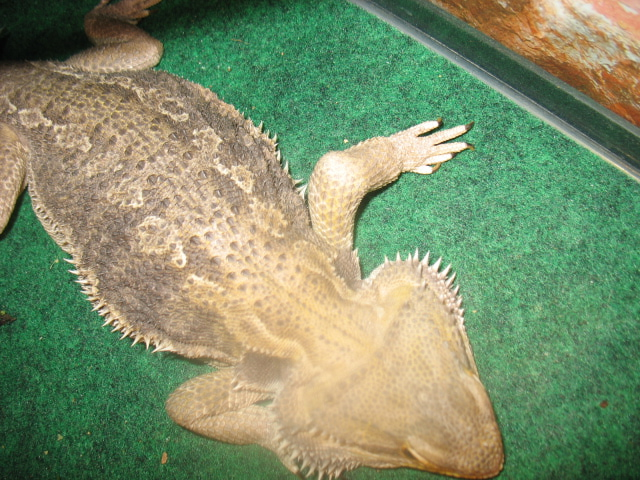 Bearded Dragon diagnosis Osteomyelitis
Question
Bearded dragon arm Tail
Hi Tracie
Bearded Dragon diagnosis Osteomyelitis
Question
Bearded dragon arm Tail
Hi Tracie
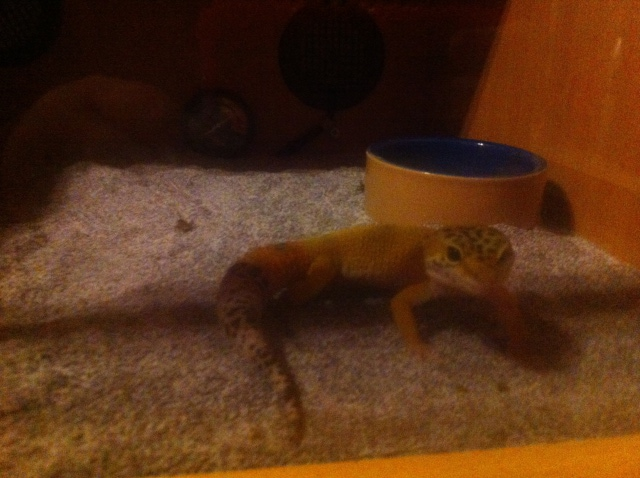 Eating habits in my leopard gecko
Question
Taken a few moths ago
Ive had my gecko
Eating habits in my leopard gecko
Question
Taken a few moths ago
Ive had my gecko
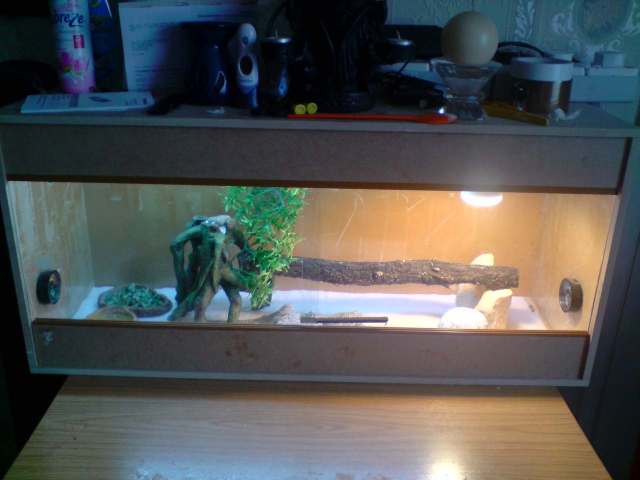 10wk beardie
QuestionQUESTION: hi diane,
here are the other links of
10wk beardie
QuestionQUESTION: hi diane,
here are the other links of
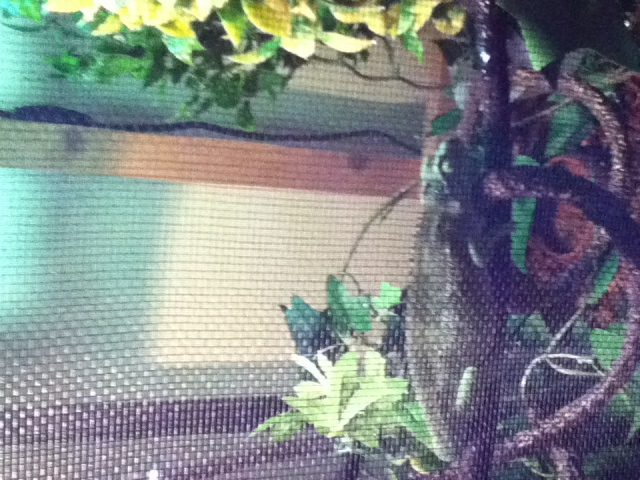 Could it be my UVB bulb?
QuestionQUESTION: Hi. I have a 13 month old Yellow Cres
Could it be my UVB bulb?
QuestionQUESTION: Hi. I have a 13 month old Yellow Cres